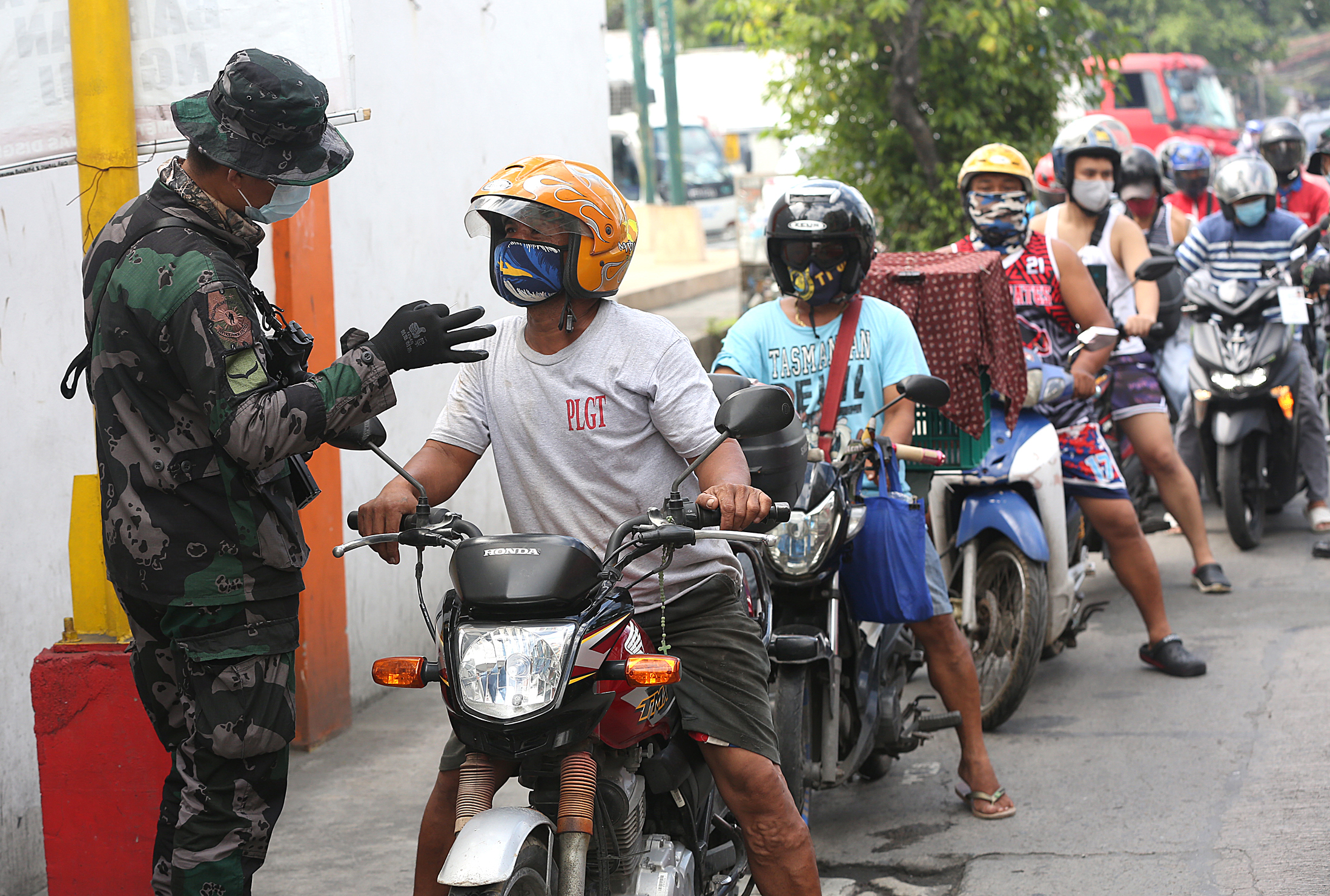
QUARANTINE CHECKPOINT A long line forms at one of several checkpoints in Navotas City which is on a 14-day lockdown due to rising coronavirus cases. —NIÑO JESUS ORBETA
A total of 245 residents were arrested on Thursday, the first day of a 14-day citywide lockdown in Navotas, for violating quarantine protocols.
According to Navotas police chief Police Col. Rolando Balasabas, some of those arrested were caught outside their houses without quarantine passes. Others failed to show proof of employment when confronted at checkpoints while some were not wearing masks or practicing physical distancing.
Under existing city ordinances, violators of the minimum health standards set by the Department of Health may be fined between P1,000 and P3,000.But a stiffer fine of P4,000, on top of prison time for the third and succeeding offenses, awaits parents or guardians who will let their children loiter in the streets.
Mayor Toby Tiangco placed the city on lockdown from July 16 to 29 due to a rapid increase in new coronavirus disease (COVID-19) cases, with some patients coming from the same household.
As of Thursday afternoon, the city health department had recorded 1,097 confirmed coronavirus cases in Navotas, 645 of which were active.
A total of 348 policemen and soldiers have been sent to the city to help the local police enforce quarantine protocols.
“What we want to happen through this lockdown is for families to keep the virus contained within their homes. We will be intensifying the information campaign on what residents need to do to prevent the spread of the virus,” Tiangco told reporters.
URBAN VIRUS WARFARE Residents peer out of a window as police patrol the streets in Navotas on a combat vehicle to enforce a 14-day lockdown that begins
on Thursday to contain coronavirus infections in the city. Navotas has 645 active COVID-19 cases as of July 16. –GRIG C. MONTEGRANDE
Higher target
He added that the city was now able to conduct swab tests for around 250 to 300 residents daily, but the target was to raise it to 500 with the help of the national government.
With the city’s only hospital, the 50-bed capacity Navotas City Hospital, already full, the local government said new COVID-19 cases would be referred to hospitals in neighboring cities.
Dr. Christia Padolina, city health officer, said they were in close coordination with Dr. Jose N. Rodriguez Memorial Hospital in Tala, Caloocan City, one of the country’s designated COVID-19 hospitals; Valenzuela City Medical Center and Philippine General Hospital in Manila.
Also out of room for new patients were both of the city’s community quarantine facilities with a combined total of 210 beds.
At full capacity
“We have also sent 210 individuals to the [megaquarantine facilities] at the Philippine Arena and World Trade Center, since both of our community isolation facilities are also now at their full capacity,” Padolina said.
While the stricter quarantine measures prohibit residents from leaving their houses, Tiangco said there was “no need” to distribute relief goods to the entire city since authorized persons were allowed to go to work and therefore had a source of livelihood, unlike when Metro Manila was under enhanced community quarantine. Residents can also go out and buy food provided they carry a quarantine pass and follow the marketing schedule set by the city government for each barangay.